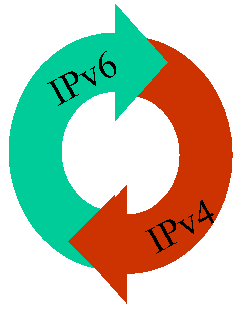Google and Facebook have warned internet users to expect 'teething pains' on Wednesday (08-June-2011) as leading internet companies test drive a new global numbering system for cyberspace.

Wednesday 8 June 2011 is World IPv6 Day, which means around 200 organisations, including Google, Facebook and Yahoo, will offer content over IPv6 for a 24-hour trial.
Many in the industry are seeing the trial, which is supported by the Internet Society, as a "wake-up call" for organisations to prepare for IPv6 to ensure a smooth transition as IPv4 addresses run out.
"The goal of the Test Flight Day is to motivate organisations across the industry – internet service providers, hardware makers, operating system vendors and web companies – to prepare their services for IPv6 to ensure a successful transition as IPv4 addresses run out," explained the Internet Society about the day.
The old system could handle several billion addresses. IPv6 has room 340 undecillion of them. That's 34 followed by 37 zeros -- enough for every human on Earth to have trillions of personal gadgets.
But the two systems aren't easy to integrate; they're essentially parallel, independent networks. Internet service providers, operating system manufacturers, browser developers and website operators have been working for several years on the extensive technical changes needed for the switch. Today's experiment is the first global road test of their work.
The transition from IPV4 to IPV6 will free up more than 4 billion new web addresses.
Many in the industry are seeing the trial, which is supported by the Internet Society, as a "wake-up call" for organisations to prepare for IPv6 to ensure a smooth transition as IPv4 addresses run out.
"The goal of the Test Flight Day is to motivate organisations across the industry – internet service providers, hardware makers, operating system vendors and web companies – to prepare their services for IPv6 to ensure a successful transition as IPv4 addresses run out," explained the Internet Society about the day.
The old system could handle several billion addresses. IPv6 has room 340 undecillion of them. That's 34 followed by 37 zeros -- enough for every human on Earth to have trillions of personal gadgets.
But the two systems aren't easy to integrate; they're essentially parallel, independent networks. Internet service providers, operating system manufacturers, browser developers and website operators have been working for several years on the extensive technical changes needed for the switch. Today's experiment is the first global road test of their work.
The transition from IPV4 to IPV6 will free up more than 4 billion new web addresses.
No comments:
Post a Comment